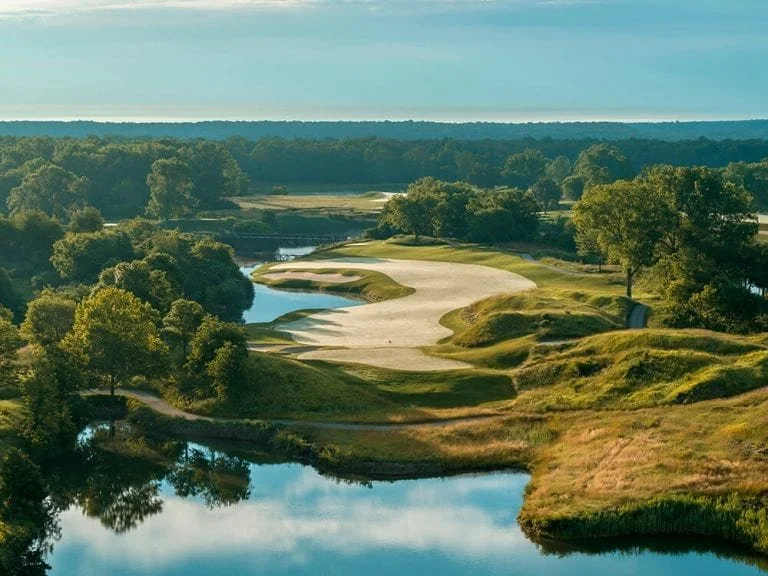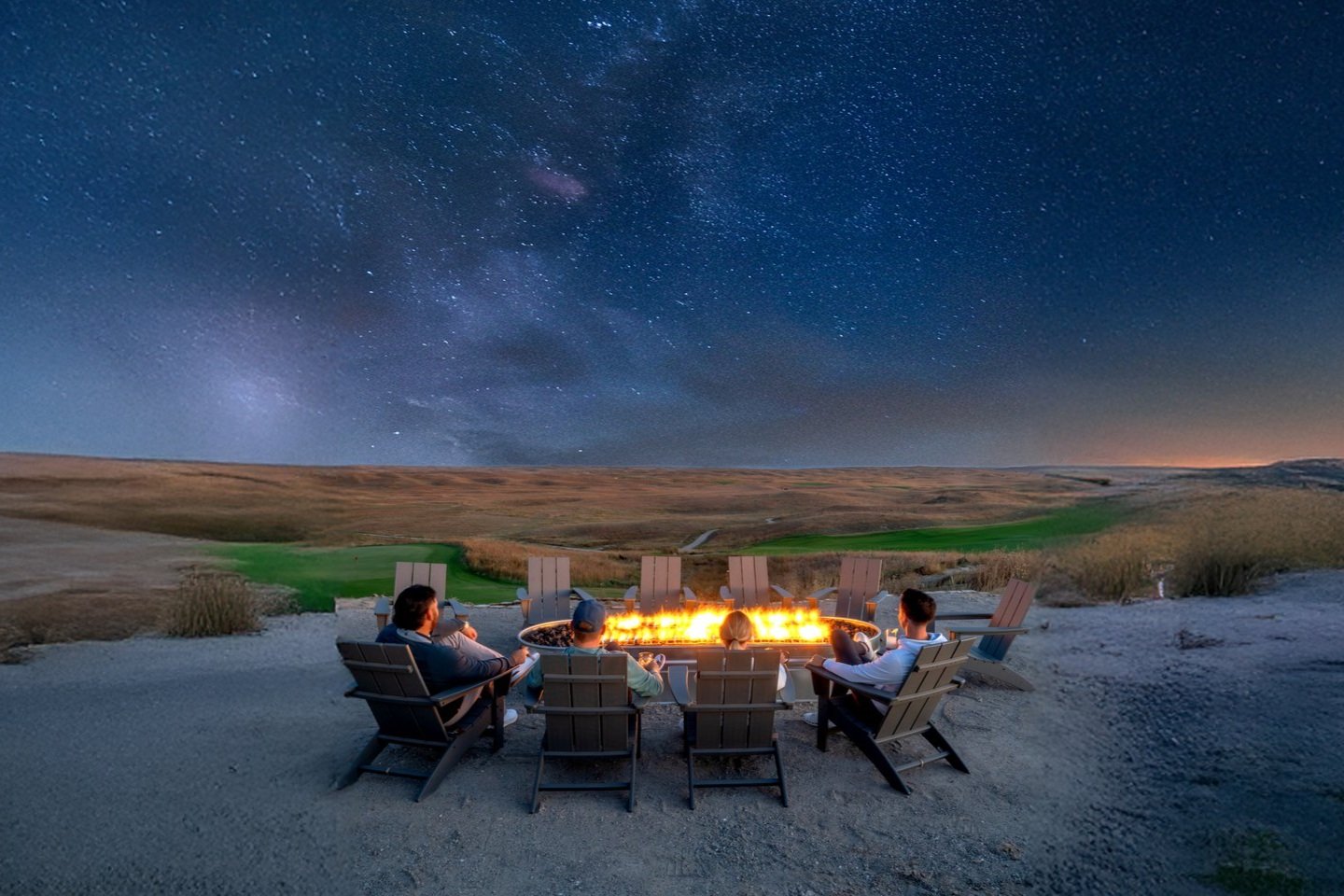Dormie Network Provides a Unique Approach to Private Club Membership
By Erik Matuszewski • LINKS Magazine
The golf might be the initial attraction of Dormie Network’s unique model—full membership privileges to six (and counting) top-rated private clubs around the U.S.—but it’s the experiential component that truly sets it apart.
I recently had the opportunity to visit the newest addition to Dormie Network’s portfolio: Hidden Creek, a terrific design from Bill Coore and Ben Crenshaw that winds through a sprawling 750-acre wooded and sandy property in southern New Jersey, just minutes from the beach and Atlantic City. I’d been there years earlier when it was a traditional private club and was wowed by the natural beauty and feeling of seclusion.
Victoria National 17th hole (photo by Evan Schiller)
The course was just as good on my return, but the experience was quite different. I joined a buddy who was passing through the area for an overnight stay in an eight-room lodge with a lighted putting green that sits unobtrusively in the trees off the first and second fairways. We played a late-evening nine holes on the afternoon we arrived and barely saw another person on the course, save for the staffer who rode out in a cart to take drink orders and see if we needed anything else. We later ate dinner on the patio behind the clubhouse overlooking the 18th green, drove our golf cart back to the lodge, grabbed some drinks from our private kitchen, and headed back outside for some friendly putting and short-game challenges under the lights.
In trying to wrap my head around what Dormie Network is doing, that’s really what the model is built upon—creating experiences that revolve around the golf. Members and guests don’t have to leave the property for the entirety of their trip, and are made to feel like every club in the network is their home club.
Yes, every Dormie course is found in “Best in State” lists from various publications, with Victoria National—a visually spectacular Tom Fazio course built over 400 acres of reclaimed mining land—laying claim to the top spot in Indiana. The others in the mix are Arbor Links in Nebraska, Ballyhack on the eastern slopes of Virginia’s Blue Ridge Mountains, Briggs Ranch outside San Antonio, and Dormie Club, another Coore & Crenshaw design, on the outskirts of Pinehurst in North Carolina. Just don’t call Dormie Network a reciprocal club.
“We get that quite a bit. But that’s not how we work,” says Dave Plaster, Dormie Network’s Chief Marketing Officer. “All properties are privately owned by us and managed by us. So, you don’t join just one, you join the network. And everybody has the same network privileges. Looking at the traditional private club model, we tried to eliminate things people don’t like: Minimum food requirements, assessments, cart fees. You pay an initiation, a dues structure, and you’re a member at every club. As we grow, your membership grows. And we’ve built, and continue to build, amenities at every property.”
The lodge at Hidden Creek (photo by Erik Matuszewski)
Without getting too specific, the initiation fee that creeps into the five-figure range is competitive with a mid-level private club in many parts of the country, and a fraction of what it would be if one were to join one of the courses individually.
In a society where more consumers are seeking products and experiences curated for them, Dormie Network has a growing appeal—particularly among corporate groups or those who like to travel, whether it’s for business or trips with friends.
It’s why societies and groups like the Outpost Club and the Eligo Club have proven popular: They give golfers with the means the opportunity to play a variety of courses around the country, if not the world. It’s bucking the traditional single-club membership approach.
For now, Dormie Network’s reach extends only inside the U.S., but the organization is constantly on the lookout for new additions to its portfolio. All clubs keep their individual logos and identities, and retain a limited number of regional members (usually within about an hour’s drive) that have the same privileges at all the other clubs in the network. While there’s a uniform level of hospitality—whether it’s the food and beverage or the accommodations—the clubs retain an individual personality, from Texas barbeque at Briggs Ranch to the local saltwater taffy waiting in the rooms at Hidden Creek.
“When they buy a club like this, there is an apprehension of change for existing members, who might think this isn’t what they joined,” says Jon Chapman, who took over as Hidden Creek’s General Manager shortly after Dormie Network acquired the property in 2018. “But then they see the capital improvements and the experience that comes with a group like this, and they immediately get it.”
New carts, new maintenance equipment, new Titleist Pro-V1s on the range, refurbished buildings; all were a part of Dormie Network’s immediate investment at Hidden Creek, which is an hour drive from Philadelphia, two-and-a-half hours from New York City, three hours from Washington, D.C., and a short drive to the Atlantic City casinos. Plans are in the works for three new cabins to be built that will add another 36 rooms for traveling golfers.
“You could stay in the lodge, play golf all day, have a steak, go to the casinos, stay out late, then come back and do it all again the next day,” Chapman says. “A lot of private clubs provide a nice experience, but the hospitality is really what changes. They say service is what you do for somebody, hospitality is how you make them feel. We’re really making you feel a certain way when you’re on property. We want every person that comes here to feel like they own the place.”
Ballyhack 9th hole (photo courtesy Dormie Network)
Read the original article written by Erik Matuszewski for LinksMagazine.com.













